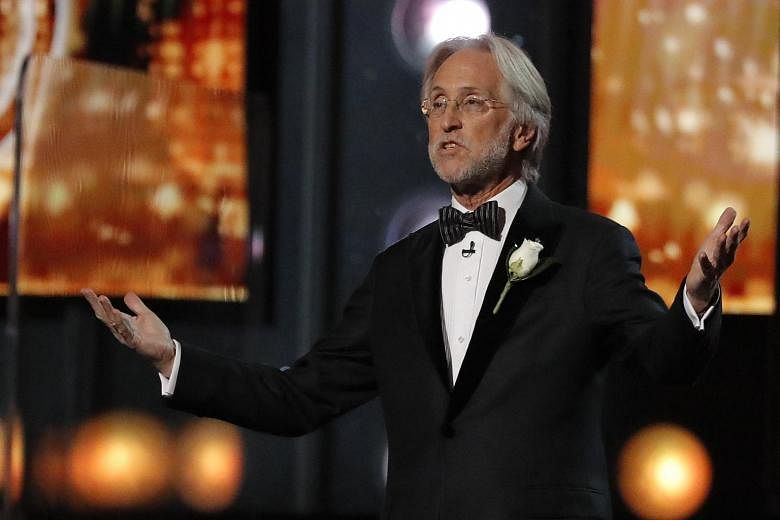(NYTIMES) - In the week after the Grammy Awards, the condemnations came swiftly for Neil Portnow, president of the Recording Academy, for saying that women in music needed to "step up" to advance their careers. Within days, artists like Pink and Kelly Clarkson spoke out, and a group of lawyers and talent managers called for Portnow to resign.
Yet one important contingent of the business has been conspicuously silent: top female executives at the major record labels and music publishers.
No more.
In a joint letter signed by six of the industry's most powerful women addressed to the Recording Academy's board of trustees, the executives called the organisation "woefully out of touch with today's music, the music business, and even more significantly, society", and said that the academy, which presents the Grammys, needed to become more inclusive and transparent.
The letter, sent to the board on Monday and obtained by The New York Times, was signed by Michele Anthony, an executive vice president at the Universal Music Group; Jody Gerson, chief executive of Universal's publishing arm; Julie Greenwald, co-chairman of Atlantic Records; Sylvia Rhone, president of Epic Records; Julie Swidler, general counsel of Sony Music; and Desiree Perez, chief operating officer of Roc Nation.
The letter stops short of calling for Portnow's removal. Instead, it portrays his words - spoken to reporters after the Grammys on Jan 28 - as indicative of deeper problems.
"Neil Portnow's comments are not a reflection of being 'inarticulate' in a single interview. They are, unfortunately, emblematic of a much larger issue with the NARAS organisation as a whole on the broader set of inclusion issues across all demographics," the women wrote, referring to the academy by an acronym for its legal name, the National Academy of Recording Arts and Sciences.
The women noted that they also wrote on behalf of their companies, which include the music world's three dominant conglomerates.
Portnow responded on Monday afternoon with a brief statement: "We appreciate the points raised in this letter and welcome the opportunity to work with these executives to address the issues of inclusion, representation, fairness, and diversity in our community. As we establish the details around our recently announced task force, we will seek their input and guidance."
In the days leading up to this year's awards, gender became a much more hotly debated topic for the industry than perhaps ever before.
The rapid spread of the #MeToo movement in Hollywood, media and politics put a spotlight on the music world's relative quiet on the issue. An academic report highlighted the poor record of gender diversity in music and at the Grammys, where for the last six years only 9.3 percent of nominees have been women.
This year, only one woman won a solo award during the televised ceremony. And Lorde, the sole female nominee for album of the year, was not offered a performance slot of her own. In a gesture interpreted as protest, she stitched a provocative poem by artist Jenny Holzer into the back of her red dress: "Rejoice! Our times are intolerable," the poem began. "Take courage, for the worst is a harbinger of the best."
When asked after the awards whether it was a mistake not to offer Lorde a solo spot, Ken Ehrlich, the longtime producer of the show, said: "There's no way we can really deal with everybody." A day after Portnow made his "step up" remark, he issued another statement saying that the music world "must welcome, mentor and empower" women. But many women found that comment condescending and noted that it contained no apology.

